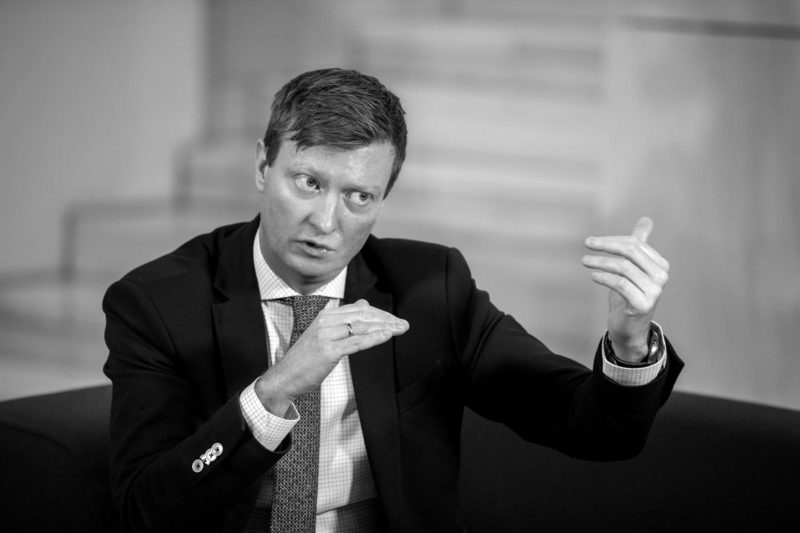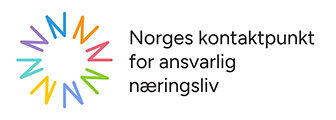– We must contribute to returns, but also to a positive development in society. We must behave with integrity in relation to our customers. We must be open and honest and listen more to other stakeholders, says Kaj-Martin Georgsen, Head of Corporate Responsibility and Public Affairs at DNB.
It is not long ago that the finance industry would have ended this statement before the first comma. Now, DNB is among the financial stakeholders that are redefining their role and raising corporate social responsibility in its strategic planning.
– As a lender, we have a unique opportunity to make a difference. On the investment side, our investments are often small, but we nonetheless have the power to assert influence together with others, Georgsen believes.

Challenge for the corporate culture
‘We are used to thinking in spreadsheets and securing that what we do doesn’t damage our reputation if it’s on printed on the cover of a national newspaper. Now that we are in a central position in society and say that we want to make a positive contribution, it is a challenge for the corporate culture,’ smiles Georgsen, and points out that the financial sector has slightly different stumbling blocks to consider than other businesses, since it is held accountable for the whole value chain it funds.
In the USA, for example, DNB faced rough times when it emerged that the oil pipeline they helped to fund through loans would negatively affect indigenous peoples’ territories, and was subject to massive protests from indigenous groups who claimed that their interests were not safeguarded by the developer. The conflict surrounding the Dakota Access Pipeline combined with various other storms in recent years contributed to a process that, according to Georgsen, was already in motion.
Sticking your neck out
‘We see that people have come to hold higher expectations of banks and what we invest in,’ says Georgsen and repeats a clear order from the top management: DNB should not only avoid doing harm, but should also be a positive force in society. And corporate social responsibility does not only belong in one department, it must permeate the entire company.
He admits to a certain degree of discomfort in relation to how the company sticks its neck out:
‘We are measured on what we say we are going to do. And confronted with it. But we already have our head on the block just by being Norway’s biggest bank. If we are going to change the culture and the way we work, I have faith in the power that lies in the management clearly communicating its goals to the outside world.’
Due diligence
When things go wrong, withdrawing is not the only responsible path to take, in Georgsen’s view. In the USA, DNB sought advice from the indigenous groups affected and attempted to influence the project.
‘This was done through close dialogue with and follow-up of the controversial company and contact with the other international banks that were funding the project,’ explains Georgsen.
DNB only withdrew when these efforts did not succeed, an approach that Ola Mestad, Chair of Norway’s NCP, has stated is in line with the OECD’s due diligence guidelines.
What does DNB do in advance, though, to avoid investing money in projects that are not ethically sound?
Georgsen points out that the new strategic plan is at the very core of a stronger, clearer and more concrete approach to corporate social responsibility in the organisation.
‘You also need some disciples who will go after it and sow the seeds,’ says Georgsen, adding that it’s about doing business ‘the DNB way’ – everywhere – and making demands of customers:
‘For example, we demand that the companies we lend money to take an active approach to climate risk in their activities. Customers who close their eyes to this issue will also be met with a closed door here,’ says Georgsen.
Internal competence-raising is another key term:
‘After Dakota, for example, we have increased our competence on indigenous peoples’ rights. Next week, the president of the Sami Parliament will be visiting as part of a continuous dialogue. We need to invite others in when we need knowledge, and engage in dialogue in advance,’ Georgsen believes.
Litmus test
At the end of the day, it all comes down to which factors are taken into consideration before the bank enters into financing agreements.
‘We need to become better at making good sustainability assessments. We have been too brief in this area and assessments have not been reviewed,’ says Georgsen, and adds that DNB has already introduced a broader and verifiable due diligence perspective to its credit processes.
However, Georgsen is clear that they have some way to go before he can be sure that everything DNB does passes what he calls the litmus test: Could I tell my mum about it?
———————————–
This is an article from Norway’s NCP annual report. Text: Marianne Alfsen
